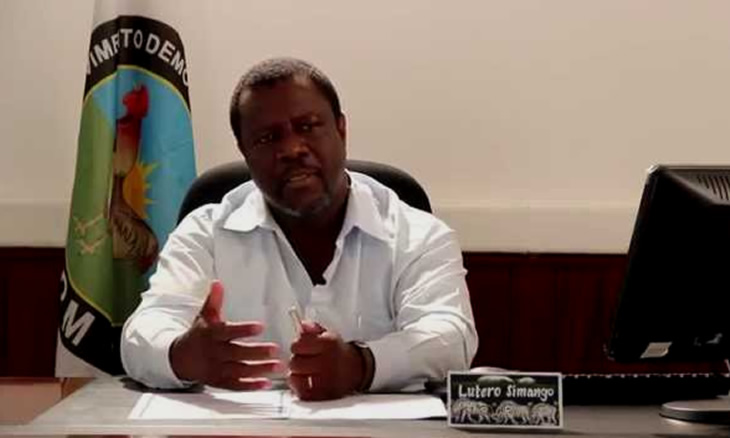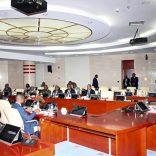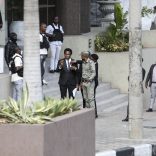Mozambique: CNDS condemns terrorist raid in Nampula province - AIM
Mozambique: MDM explains its boycott – AIM report

Photo: O País
Mozambique’s second largest opposition party, the Mozambique Democratic Movement (MDM) has justified its two-day boycott of the country’s parliament, the Assembly of the Republic, as a protest against being denied the chance to appoint an extra member of the National Elections Commission (CNE).
The head of the MDM parliamentary group, Lutero Simango, told reporters on Thursday that “the way in which the election of CNE members from civil society was handled, by using the parliamentary majority, promotes two party politics, ignoring the fact that the Assembly consists of three political parties”.
Simango thus opposed the procedure, not on the grounds that the CNE is politicised from top to bottom, but merely because the MDM is not getting its share of the spoils.
The CNE has 17 members. Ten are directly appointed by the parliamentary political parties (five by the ruling Frelimo Party, four by the main opposition party, Renamo, and one by the MDM), and seven supposedly come from civil society organisations. But the names from civil society (151 this time) were filtered through an ad-hoc commission formed by deputies from the three parties. From the resulting short list, Frelimo chose five names and Renamo two, and these became the civil society members of the CNE.
The MDM did not protest at this bizarre procedure, but wanted to be part of it. It saw nothing wrong in principle with political parties choosing which “civil society” figures would sit on the CNE.
In 2014, when the previous CNE was elected, there had been an informal “gentlemen’s agreement” on dividing the civil society members between the three parties, allowing the MDM to choose one of them. But this was never written into any law.
The CNE civil society members were elected on Tuesday. Angered at what it saw as a conspiracy by Frelimo and Renamo against it, the MDM boycotted the State of the Nation Address given by President Filipe Nyusi to the Assembly on Wednesday, and did not show up to the closing session of the parliamentary sitting on Thursday, either.
Simango said the boycott sought “to draw the attention of Mozambicans to the real threat of political bipolarisation”, which would “exclude other actors”. He claimed that Frelimo and Renamo had operated as an informal coalition, imposing their will as to what the final composition of the CNE should be.
The MDM wanted “to save the nation from hidden and dangerous agenda which undermine political, economic and financial inclusion”, he added.
Simango claimed that the way the CNE had been elected violated guarantees of balance and the “spirit of parity” and endangers the credibility of future elections.













Leave a Reply
Be the First to Comment!
You must be logged in to post a comment.
You must be logged in to post a comment.